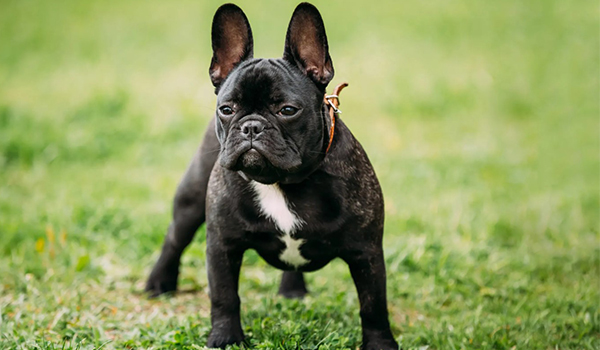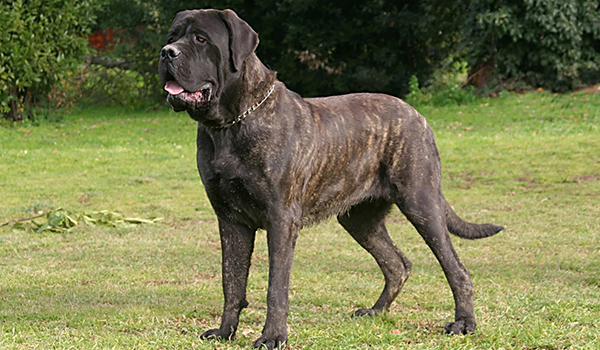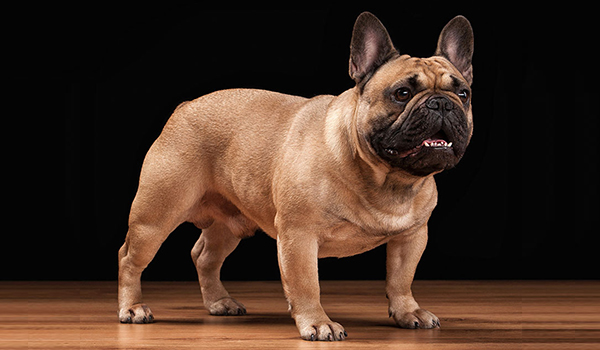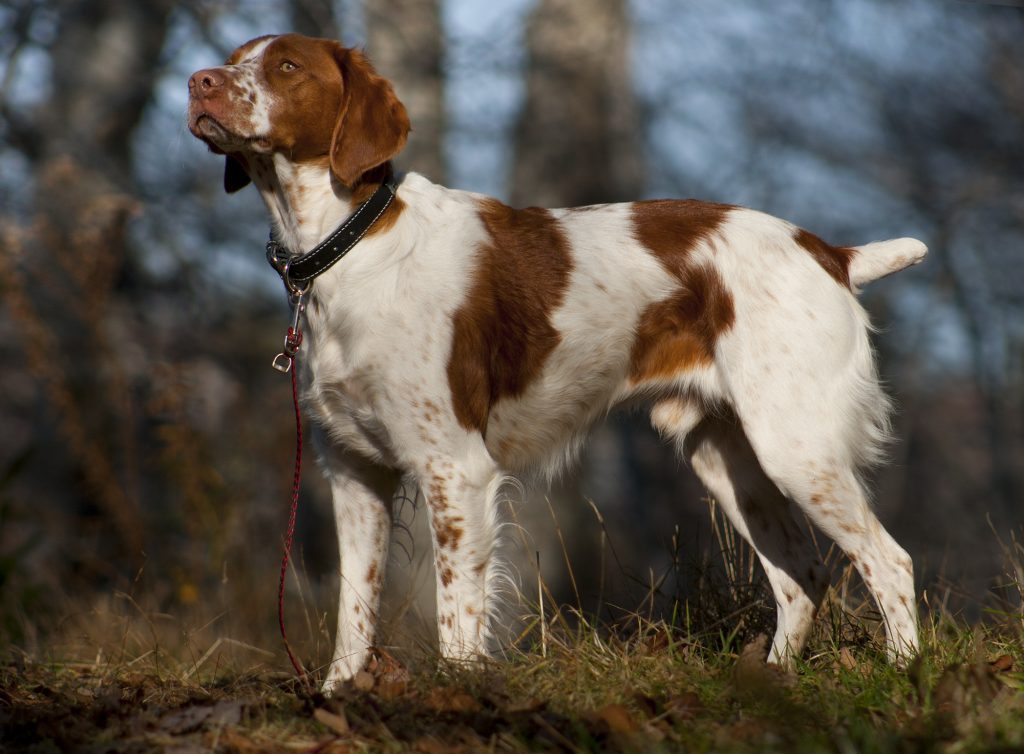
The Brittany is a breed that perfectly blends the heart of a hunter with the soul of a family companion. Often called the “energetic athlete of the dog world,” they are known for their compact size, eager-to-please attitude, and boundless enthusiasm. With their expressive faces and lively gait, they are more than just a pretty pointing dog—they are intelligent, versatile, and require an active lifestyle to be truly happy.
This comprehensive guide will explore everything a future owner needs to know about the Brittany, from their origins as a French hunting dog to their modern-day needs, to help you decide if this energetic and affectionate partner is the right fit for your home.
Breed Overview
- Group: Sporting
- Height: 17.5 – 20.5 inches (at the shoulder)
- Weight: 30 – 40 pounds
- Life Span: 12 – 14 years
- Coat: Dense, flat, or wavy coat that repels water and requires minimal maintenance. Colors are orange and white or liver and white, in either clear or roan patterns.
A Brief History: The Eager French Gun Dog
The Brittany originated in the Brittany province of France in the 1800s, where they were developed as a versatile gun dog capable of pointing, retrieving, and flushing game. They are one of the few pointing breeds that can be born with a naturally short tail. Their name was officially changed from “Brittany Spaniel” to simply “Brittany” in 1982, as their working style is more akin to a setter or pointer than a traditional spaniel.
They were prized by French hunters for their agility, keen nose, and ability to work closely with their human partner. Their smaller size made them an efficient and energetic hunter in dense cover. Their intelligence and agreeable temperament quickly made them a popular choice both in the field and as a family dog in Europe and North America.
The Brittany Temperament: The Energetic and Affectionate Partner
The Brittany’s personality is a dynamic mix of high energy and sweet-natured devotion. They are true “velcro dogs” that thrive on being part of the action.
- Energetic & Athletic: Bred for a full day’s work in the field, Brittanys have a seemingly endless supply of energy. They are not a casual walking partner; they are a running, hiking, and hunting partner.
- Intelligent & Trainable: They are exceptionally bright and eager to please, making them highly trainable. They excel in obedience, agility, and, of course, field trials. A bored Brittany will find their own (often destructive) entertainment.
- Affectionate & People-Oriented: They form incredibly strong bonds with their families and want to be involved in everything you do. They are typically gentle and good with children.
- Playful & Fun-Loving: They retain a puppy-like joy and playfulness well into adulthood. Their zest for life is contagious.
- Soft-Hearted & Sensitive: They are sensitive souls who respond best to positive reinforcement and a gentle hand. Harsh training methods can crush their spirit and damage their trust.

Caring for Your Brittany
Exercise: A Non-Negotiable Daily Requirement
This is the single most important aspect of Brittany ownership. An under-exercised Brittany will be destructive, anxious, and develop behavioral problems.
- Daily Requirements: At least 60-90 minutes of vigorous, heart-pumping exercise every single day.
- Types of Exercise: This must be more than a walk. Ideal activities include:
- Off-Leash Running: In a securely fenced area, this is the best way to satisfy their need to run and explore.
- Running & Hiking: They make excellent companions for runners and hikers.
- Dog Sports: They are naturals at agility, flyball, dock diving, and field work.
- Mental Stimulation: A tired body is not enough; their mind must be tired too. Training sessions, puzzle toys, and nose work are essential.
Grooming: Surprisingly Low-Maintenance
- Brushing: A quick brush 1-2 times per week with a slicker brush or grooming mitt is sufficient to remove loose hair and prevent mats in the feathering on their legs and ears.
- Bathing: Bathe only as needed. Their coat naturally repels dirt.
- Other Needs: Regular ear cleaning (especially after swimming), nail trimming, and teeth brushing. Some owners opt for light trimming of the feathering for a neater appearance.
Training: A Joyful Partnership
Training a Brittany is generally a rewarding experience due to their intelligence and willingness to please.
- Start Immediately: Begin socialization and puppy training on day one. Positive exposure to a wide variety of people, animals, and environments is crucial for building a confident, well-adjusted dog.
- Use Positive Reinforcement: They are sensitive and respond brilliantly to reward-based training with treats, praise, and play. They aim to please their trusted handler.
- Keep it Fun and Varied: They learn quickly and can become bored with repetition. Keep training sessions short, challenging, and fun.
- Master Recall: A reliable recall is essential, but their strong nose and hunting instincts can be distracting. Practice in securely fenced areas before attempting off-leash work in open spaces.
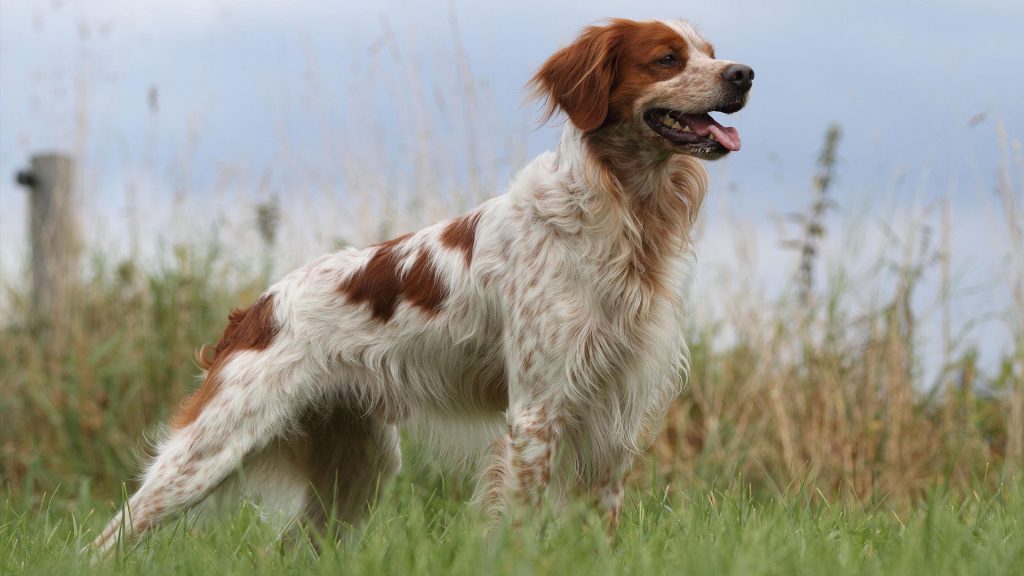
Health: What to Be Aware Of
Brittanys are generally a robust and healthy breed, but they are prone to a few hereditary conditions. Reputable breeders test for these.
- Hip Dysplasia: A common skeletal condition that responsible breeders screen for with OFA or PennHIP certifications.
- Epilepsy: They can be prone to seizures, which are usually managed with medication.
- Eye Conditions: Such as cataracts and progressive retinal atrophy (PRA). Reputable breeders have their dogs’ eyes certified annually by a veterinary ophthalmologist.
- Hypothyroidism: A manageable thyroid disorder.
Is a Brittany Right For You?
A Brittany might be your perfect match if you:
- Are an extremely active person or family (runner, hiker, hunter, athlete).
- Want a versatile partner for dog sports or outdoor adventures.
- Are looking for an intelligent, trainable, and affectionate “shadow.”
- Have a securely fenced yard or access to safe, open areas for running.
- Are an experienced dog owner who can provide consistent, positive training.
You should absolutely reconsider if you:
- Want a low-energy or sedentary lap dog.
- Are away from home for long hours on a regular basis.
- Are a first-time dog owner unprepared for such high energy and intelligence.
- Do not have a secure area for off-leash exercise.
- Are frustrated by a strong prey drive.
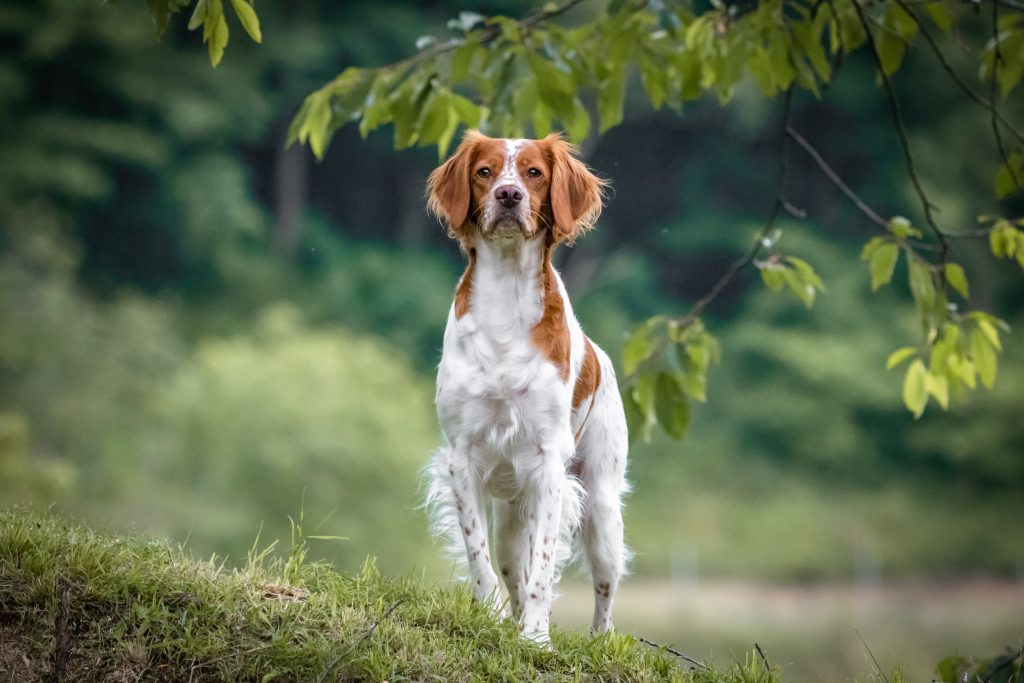
Finding Your Brittany
- Reputable Breeders: This is crucial. A good breeder will:
- Health Test: Provide OFA/PennHIP certifications for hips and annual eye clearances.
- Focus on Temperament: Breed for stable, sound nerves and a good working attitude.
- Interview You Rigorously: They will want to ensure you have the lifestyle for one of their high-energy puppies.
- Rescue & Shelters: Brittany-specific rescues are very active. Many dogs end up there because owners were completely overwhelmed by their energy needs. Adopting an adult can be a great way to provide a second chance.
Understanding the Cost: The initial cost from a reputable breeder in the U.S. ranges from $800 to $2,000+. The larger cost is the investment of time and activity. You must also budget for high-quality food, potential sports training classes, and preventative healthcare.
Bringing a Brittany into your life is a commitment to an active, engaged partnership. In return for your dedication, you will gain an incredibly loyal, intelligent, and versatile companion whose enthusiasm for life and work is truly contagious

